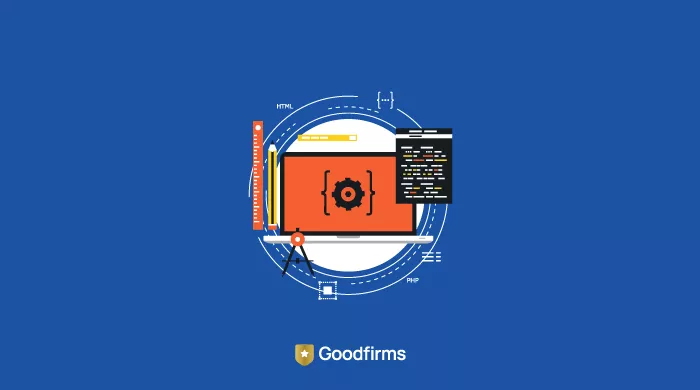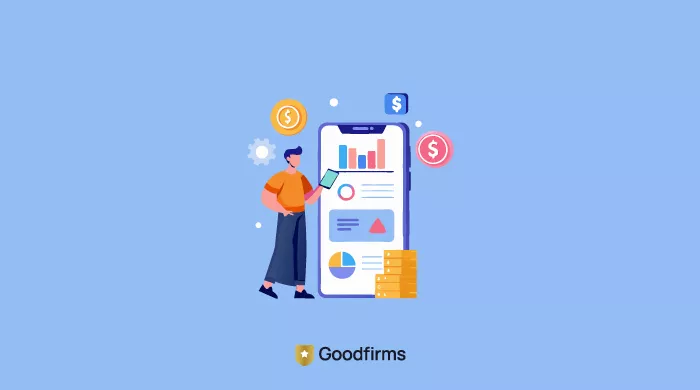With more than86% market share, Android OS now dominates the mobile app development world. An open-source development platform, the popular mobile OS offers developers maximum customization features. Its applications have also expanded to deployment on smartphones, PCs, tablets, cars, set-top boxes, smartwatches, and home appliances. As a result, many businesses are leveraging Android app development to enhance their processes, increase their reach, and, ultimately, their revenues.
However, finding the right Android development framework is not a walk in the park, as the market is loaded with Android development tools. Knowing which Android platform to choose can be the difference between a great and brilliant app and a boring one. As such, the right Android architecture is an essential part of any mobile app development, and Android programmers cannot neglect the process of selecting the most appropriate Android framework for a project.
Well, we've gone ahead and made it easy for you by identifying the top 5 best Android frameworks for App Development in 2020.
1. React Native
React Native is regarded as one of the best Android development frameworks. So much so that it’s one of the fastest-growing and most wanted open-source platforms by developers. Its origin is a Facebook hackathon that started in 2013 and later led to its release in 2015. It features React, a JavaScript for building apps for both Android and iOS. It also integrates native platform-specific components and APIs and is thus popular for native-like and well-designed user interfaces multiple across platforms.
Given that Facebook developed it, React Native boasts a huge number of followers and an army of developers. It is also a favorite Android development tool by businesses, including Facebook, Tesla, Instagram, Walmart, Intuit, Uber, and more.
Features:
- Released in 2015
- MIT License
- Written in JavaScript and React
- Deployment options include Mobile, Web, UWP
- Native API access – JavaScript and 3rd party Libraries
- Native Widget UI Element
- Flux and Redux MVC Architecture
- Used by approximately 42% of developers
- Support forums GitHub, Stack Overflow, Dev Community, and more
2. Ionic
Ionic is a free and open-source popular Android development platform for building cross-platform apps with one codebase. The powerful Android platform allows developers to build using HTML5, CSS3, and JavaScript. Ionic also utilizes AngularJS, which is an ideal framework for developing mobile and web applications. Let’s also not forget that it features a command-line interface (CLI) to make development much more comfortable and faster. It also utilizes Cordova plugins to help access components such as camera, GPS, and more pretty efficiently. The Ionic development framework keeps improving with time, with the latest version using minimal DOM to achieve better performance.
That said, it’s an ideal choice for development teams who want to build hybrid and interactive mobile apps. Top ionic apps include MarketWatch, Sworkit, Pacifica, Untappd, and Honeyfi.
Features:
- Released in 2013
- MIT License
- Written in JavaScript
- Uses HTML5, CSS, and JavaScript
- Deployment options include Mobile, Web, Desktop, and PWA
- Standard and Rich UI Elements
- AngularJS MVC Architecture
- Command Line Development Interface
- Used by more than 5M+ developers globally
- Multiple support forums, including Ionic forum, Stack Overflow, and Slack
3. Flutter
Flutter is yet another popular open-source framework that allows developers to develop attractive, expressive, and high-quality native applications on iOS and Android platforms very quickly. Unlike the first two, it’s a bit new in the Android development market but has already created a name for itself, seeing that it’s deployed in Google Ads, having been developed by Google.
Written in Dart, Flutter works with existing code to help teams in mobile app development and is a perfect choice for developers who want to succeed in hybrid app development. It uses a single codebase, and its apps adequately compile to native code by exploiting Google’s 2D rendering engine, Skia, to develop visuals that resemble the Material Design and Cupertino style.
Flutter app development is an increasingly popular trend, with popular companies such as Google, Alibaba, eBay, CapitalOne, Tencent, and others using it to develop high-end mobile apps.
Features:
- Released in May 2017
- New BSD License
- Written in Dart, C, C++
- Deployment options include Mobile, Web, PWA, and desktop
- Rich UI rendering components, widgets for Material Design, and Cupertino
- Skia MVC Architecture
- Used by 30% of developers
- Support forums include Slack, Github
4. Corona SDK
Perfect for beginners and free to use, Corona is considered one of the best 2D and 3D mobile development cross-platforms for creating apps and games on a single code base worldwide. It implements Lua, a strong and lightweight scripting language. The platform also features numerous built-in APIs, plugins, and Corona Native extensions to enhance app development. The SDK also features a simulator that allows you to see your work and any changes that you make.
Many enterprises use Corona SDK for app development. The framework is also behind the popular games Warcraft, Angry Birds, The Lost City, and more.
Features:
- Released in December 2009
- Free to use
- Written in Lua
- Used for mobile and web deployment
- Implements Corona APIs, REST
- UI Designer, UI frameworks, and plugins
- Game controllers and MVVM architecture
- Used by more than 500+ developers
- Corona Forums
5. Native Script
For development teams that want to develop for multiple platforms in a short time, the platform to consider is Native Script. Like the ones we have mentioned, it is a free platform that provides app developers with everything they need to build native apps with JavaScript, TypeScript, Angular, or Vue.js. However, unlike the rest, it works differently by focusing on native UX, which is pretty convenient when integrated with cross-platform code sharing. It also allows you to use free templates, plugins, and app samples.
As for fans, Native Script has not been left behind and is used by Symantec, Dell, Microsoft, and millions of developers.
Features:
- Released in March 2015
- Apache 2 License
- Written in JavaScript, CSS, Angular
- Mobile, Web, Desktop, and PWA deployment options
- JavaScript API Access
- Native Script UI Elements
- Composable MVVM Architecture
- Development interfaces include CLI, Sidekicks, VS Code, Plugins
- Used by 2.1M+ developers
- Stack Overflow, Slack, Github, and more support forums
Conclusion
The app development market is packed with many Android development frameworks, and it's not easy to decide which one to select for your next app development project.
Well, we’ve just shared the top 5 best Android frameworks for App Development in 2020. We hope you’ve enjoyed reading about them and that our list helps you avoid endless searches for a suitable framework. Not only that, but you will also apply one or more to create striking Android apps!








